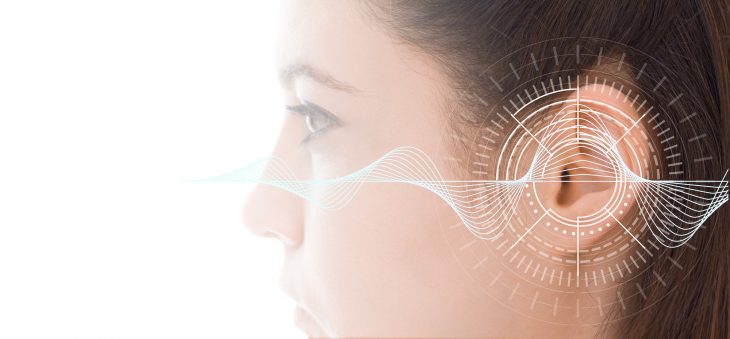
Hearing is one of our most vital senses, allowing us to experience and interpret the world through sound. From the joyful melodies of music to the whispered secrets of loved ones, our ability to hear shapes our interactions and perceptions. In this article, we delve into the fascinating realm of hearing, uncovering 19 captivating facts that will broaden your understanding of this remarkable sensory experience. Join us as we embark on a journey through the intricate workings of the auditory system, exploring the science, mysteries, and wonders of hearing.
The Complexity of the Ear
The human ear is an intricate and remarkable organ composed of three main parts: the outer ear, middle ear, and inner ear. Each section plays a crucial role in capturing and transmitting sound waves, allowing us to perceive the world of auditory sensations.
The Outer Ear and Sound Collection
The outer ear, consisting of the pinna and ear canal, is responsible for collecting sound waves and funneling them towards the middle ear. The unique shape of the pinna helps us determine the direction of sound sources.
The Middle Ear and Sound Amplification
The middle ear amplifies sound waves as they travel from the outer ear to the inner ear. It comprises the eardrum and a chain of three tiny bones known as the ossicles: the hammer (malleus), anvil (incus), and stirrup (stapes).
The Inner Ear: Home to the Cochlea
The inner ear houses the cochlea, a snail-shaped structure filled with fluid and lined with thousands of delicate hair cells. These hair cells convert sound vibrations into electrical signals that can be understood by the brain.
Hearing Beyond Humans
Humans are not the only creatures gifted with hearing. Many animals possess extraordinary auditory abilities, ranging from the echolocation skills of bats to the finely tuned hearing of dolphins.
Decibels: Measuring Sound Intensity
Sound intensity is measured in decibels (dB). The human threshold of hearing is around 0 dB, while prolonged exposure to sounds above 85 dB can cause hearing damage. Jet engines and rock concerts often reach or exceed 120 dB!
The Astonishing Power of the Cochlea
Despite its small size, the cochlea contains around 15,000 hair cells, each responsible for detecting specific sound frequencies. This remarkable precision allows us to perceive a vast range of sounds, from the faintest whispers to thunderous explosions.

The Brain’s Role in Sound Processing
Hearing goes beyond the ears. Once sound signals reach the cochlea, they are transformed into electrical impulses that travel along the auditory nerve to the brain. The brain then interprets these signals, giving meaning and context to the sounds we hear.
Music and Emotional Connection
Music has a profound impact on our emotions. When we listen to music, our brain releases dopamine, a neurotransmitter associated with pleasure and reward. This connection between music and emotion explains why certain songs can evoke powerful memories and feelings.
Speech Perception and Language Development
Hearing plays a pivotal role in speech perception and language development. Babies begin to recognize and differentiate sounds in the womb, laying the foundation for their language acquisition journey after birth.
The Intriguing World of Tinnitus
Tinnitus is the perception of sound in the absence of an external source. It can manifest as ringing, buzzing, or hissing and is often associated with hearing loss. This condition affects millions of people worldwide, highlighting the complexities of the auditory system.
Noise-Induced Hearing Loss
Exposure to loud noises, whether occupational or recreational, can lead to noise-induced hearing loss. Taking preventive measures, such as wearing ear protection, can significantly reduce the risk of long-term damage.
The Wonders of Binaural Hearing
Binaural hearing refers to our ability to perceive sound in three dimensions, allowing us to localize sounds accurately. This remarkable skill relies on the brain’s ability to process subtle differences in sound arrival time and intensity between our two ears.
The Impact of Age on Hearing
As we age, our hearing abilities may naturally decline due to the gradual degeneration of hair cells in the inner ear. Regular hearing check-ups and adopting healthy listening practices can help preserve our auditory health and quality of life.

Hearing Loss and Mental Health
Untreated hearing loss can impact our mental well-being, leading to feelings of isolation, depression, and cognitive decline. Seeking early intervention and utilizing hearing aids can significantly improve both hearing and emotional health.
Protecting Your Ears
Maintaining good hearing health involves adopting protective measures. Avoiding excessive noise, using earplugs or earmuffs in noisy environments, and practicing safe listening habits when using headphones or earphones are all crucial steps in safeguarding our hearing.
Cochlear Implants: Restoring Hearing
For individuals with severe or profound hearing loss, cochlear implants offer a remarkable solution. These devices bypass damaged hair cells and directly stimulate the auditory nerve, allowing users to perceive sound signals.
Hearing and Balance
The inner ear not only enables hearing but also contributes to our sense of balance. The vestibular system, located within the inner ear, helps us maintain equilibrium and body orientation.
Embracing the Gift of Hearing
Our ability to hear is a precious gift that connects us to the world and enriches our lives. By nurturing our auditory health, seeking timely intervention when needed, and appreciating the beauty of sound, we can fully embrace and celebrate the wonder of hearing.
Conclusion
Hearing is a remarkable sense that allows us to experience the vibrancy and richness of the auditory world. From the complex anatomy of the ear to the impact of sound on our emotions and well-being, the wonders of hearing are endless. By understanding the intricacies of this extraordinary sense, we can better appreciate its importance and take steps to preserve our auditory health.
Frequently Asked Questions (FAQs)
How can I protect my hearing in loud environments?
To protect your hearing in loud environments, consider wearing earplugs or earmuffs. These devices help reduce the intensity of sound reaching your ears, safeguarding your hearing health.
Can hearing loss be reversed?
While some types of hearing loss are irreversible, certain cases can be improved with medical intervention. It’s crucial to seek professional advice and explore available treatment options.
Are there any natural ways to enhance hearing?
While there are no guaranteed natural remedies for hearing enhancement, maintaining overall good health, adopting a balanced diet rich in essential nutrients, and protecting your ears from excessive noise can contribute to maintaining optimal hearing.
Can prolonged headphone use damage my hearing?
Prolonged and excessive use of headphones, especially at high volume levels, can contribute to hearing damage. It’s advisable to listen at moderate volume levels and take regular breaks to give your ears a rest.
How often should I have my hearing checked?
Regular hearing check-ups are essential, especially as you age. It is recommended to have a hearing evaluation every two to three years or more frequently if you notice any changes in your hearing abilities.
Was this page helpful?
Our commitment to delivering trustworthy and engaging content is at the heart of what we do. Each fact on our site is contributed by real users like you, bringing a wealth of diverse insights and information. To ensure the highest standards of accuracy and reliability, our dedicated editors meticulously review each submission. This process guarantees that the facts we share are not only fascinating but also credible. Trust in our commitment to quality and authenticity as you explore and learn with us.


